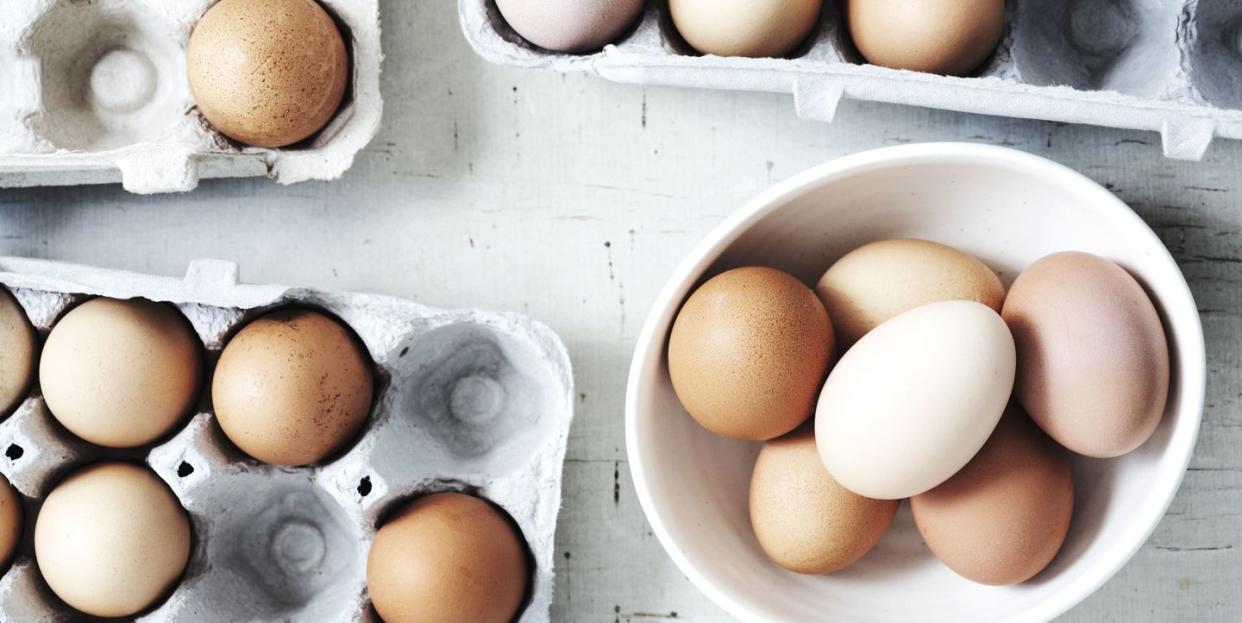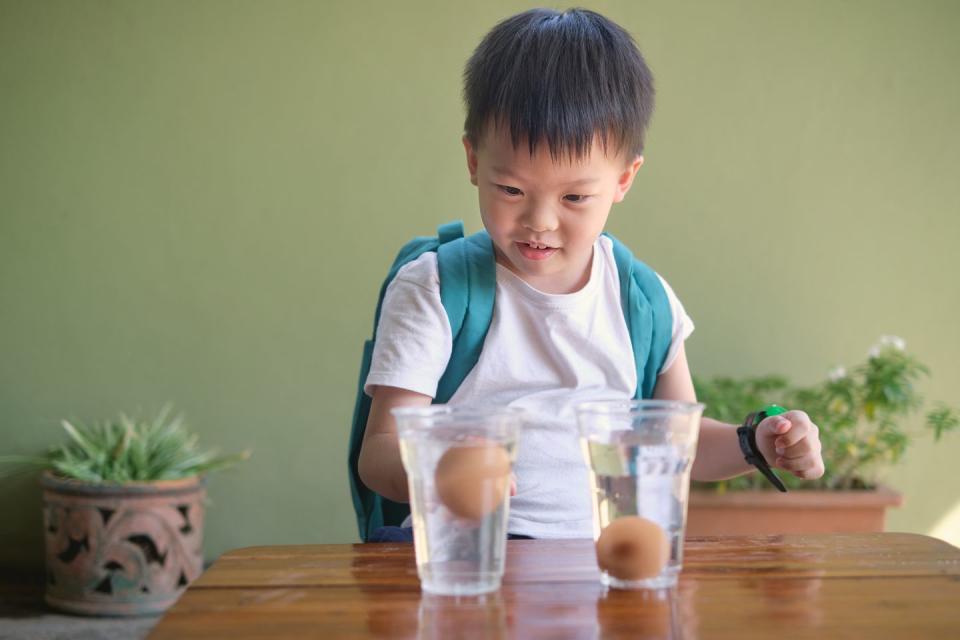This Simple Hack Will Tell You If the Eggs In Your Fridge Are Still Good to Eat

We’ve all been there: You’re about to whip up a hearty breakfast (or maybe gathering ingredients for a homemade cake!), when you reach into the fridge for the eggs and… can’t quite remember how long they’ve been sitting there.
Luckily, even if the carton with the expiration date is long gone, or, for those lucky enough to have their own backyard coops, you never had a carton in the first place, there’s more than one way to tell if an egg is still good to use. For the best tips, we turned to Brittany Donovan of Horse Shoe Ranch, a Pennsylvania farm home to almost 2,000 pasture-raised hens. Read on for her insight into how long eggs really last, along with easy tricks and strategies for telling a bad egg from a good one.
How Long Do Eggs Stay Fresh?
Per the FDA, for the best quality, you should use eggs within three weeks of their purchase date. Donovan, however, gives a slightly longer shelf life—six weeks in the fridge for farm-fresh eggs, and four weeks in the fridge for eggs from a grocery store. (“Store-bought eggs will already be older because of shipping,” she explains—hence the shorter shelf life.)
If you’re sourcing eggs straight from your own chickens, Donovan says they’ll stay good for up to two weeks on your kitchen counter or otherwise unrefrigerated if left unwashed. Once they’re rinsed—only necessary if the eggs are covered in dirt or chicken droppings—they’ll need to go straight into cooler temps, where they can wait out the rest of their shelf life. There is some farm science behind this: “When eggs are laid, they come out with a protective layer on them called the bloom,” says Donovan. “Eggs are porous, and this layer prevents bacteria from getting in.” Once the bloom has been washed away, however, eggs require refrigeration for protection.

Using the Water Test to Determine an Egg's Freshness
When you’re dealing with an older egg that looks fine on the outside, and you want to avoid a big stink, try this: Place your egg in a glass or bowl filled with cold water. If the egg sinks to the bottom it’s very fresh and should be good to use. If the egg stands up on its end or even floats slightly, it’s a little past peak freshness, but should still be edible. “I probably wouldn’t cook it sunny side up," says Donovan, "but I would still scramble it or bake with it.”
However, if the egg floats to the surface, it is old and should be discarded. In simplest terms, this is because an egg has gone bad when the pores on its shell begin to allow too much air (and thus bacteria) inside. If an egg is too old, the bacteria begins to eat the egg, which causes the "rotten egg" smell. That sulfurous smell is pretty intense, which is why you want to check it before cracking it open, if possible!
Aside from the water test, it's also safest to give the egg a visual check. Are there any noticeable cracks on the shell? If so, it's best to throw it out. If a powdery white or green substance comes off on your hands, you’ll want to toss that egg as well. That powder is likely mold.
If you’re collecting eggs from backyard hens, you may also occasionally come across one with a brittle or textured shell. That egg didn’t get enough calcium in utero, and since the shell is weakened, it should also be discarded.
Checking for Freshness After an Egg Is Cracked
Generally, once you’ve cracked an egg, you'll know immediately if it's unsafe, as it will smell terrible. But if you notice any sort of scent, it's best to throw the egg away. Fresh eggs have almost no odor at all.
However, you can also tell a fresher egg from an older (but still edible) one after it's been cracked! When cracked onto a flat dish, an egg at peak freshness will have a rounded, vibrantly yellow or orange yolk, and will be surrounded by a firmer egg white that also holds a rounded shape. In an older egg, the yolk will be flatter, and the egg white will be runnier. (This video from Good Housekeeping UK provides an excellent side-by-side comparison.)
Either one is okay to eat, though, so feel free to get cooking! If you’re in need of recipe inspiration, might we suggest one of these egg-cellent dishes?
You Might Also Like

